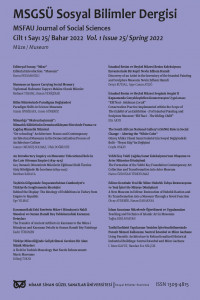Like Apples and Oranges: A Quinean Reading of Cézanne’s Pommes et oranges (Or, A Proposal for the Founding of Departments of Incomparable Literature)
Is comparative literature an exercise in futility, akin, as the old saying goes, to comparingapples and oranges? This is what Cézanne appears to be doing in his 1899 still-life Apples andOranges. In holding them still, as Cézanne’s painting does, something else seems to come tolife: the principle of kinship, allowing us to group one thing with another of the same kind.Classifying, Cézanne’s work suggests, has the virtue of ontological parsimony, as in Ockham’sRazor, which states that entities are not to be multiplied without necessity. Parsimony is centralto Willard Quine’s theory of ontological commitment: “When I inquire into the ontological com-mitments of a given doctrine or body of theory,” Quine asserts, I am merely asking what, accord-ing to that theory, there is” (1966: 126). And within Quine’s “regimented theory” what there is,finally, is physical objects and sets. In this paper I posit there is no such thing as literature, onlyindividual things to which we attribute the literary predicate. But if they are not things, what arethey? They are, I submit, collections of things; sets or classes. To call particular entities sonnetsor tragedies is already to have compared them with other entities, and classified them with thosedeemed similar. There are good reasons, I argue, why those of us studying literature ought to bewary of our ontological commitments: for they tend to multiply our obligations towards univer-sals at the expense of the object itself.
Anahtar Kelimeler:
Ontological Parsimony, Comparative Literature, Cézanne, Still-life, Quine.
Like Apples and Oranges: A Quinean Reading of Cézanne’s Pommes et oranges (Or, A Proposal for the Founding of Departments of Incomparable Literature)
Is comparative literature an exercise in futility, akin, as the old saying goes, to comparingapples and oranges? This is what Cézanne appears to be doing in his 1899 still-life Apples andOranges. In holding them still, as Cézanne’s painting does, something else seems to come tolife: the principle of kinship, allowing us to group one thing with another of the same kind.Classifying, Cézanne’s work suggests, has the virtue of ontological parsimony, as in Ockham’sRazor, which states that entities are not to be multiplied without necessity. Parsimony is centralto Willard Quine’s theory of ontological commitment: “When I inquire into the ontological com-mitments of a given doctrine or body of theory,” Quine asserts, I am merely asking what, accord-ing to that theory, there is” (1966: 126). And within Quine’s “regimented theory” what there is,finally, is physical objects and sets. In this paper I posit there is no such thing as literature, onlyindividual things to which we attribute the literary predicate. But if they are not things, what arethey? They are, I submit, collections of things; sets or classes. To call particular entities sonnetsor tragedies is already to have compared them with other entities, and classified them with thosedeemed similar. There are good reasons, I argue, why those of us studying literature ought to bewary of our ontological commitments: for they tend to multiply our obligations towards univer-sals at the expense of the object itself.
Keywords:
Ontological Parsimony, Comparative Literature, Cézanne, Still-life, Quine.,
___
- -
- ISSN: 1309-4815
- Yayın Aralığı: Yılda 2 Sayı
- Başlangıç: 2010
- Yayıncı: Mimar Sinan Güzel Sanatlar Üniversitesi
Sayıdaki Diğer Makaleler
Thomas Aquinas’ta Sanat: Güzel ve İyi
Günümüz Sanatında Çağdaşlık Politikası
Robert Musil’in Etik ve Estetik Anlayışı: Bir Yazma ve Yaşama Biçimi Olarak Denemecilik
Kant Estetiğinde Güzellik Yargılarının Evrensel Geçerliliği
Hegel Estetiğinin Modern Heykeldeki Yeri
The Schoenberg Phenomenon: Twelve-tone Music and its Absolute Alienation
Locales of Art: Synaesthesia and the Interruptions of Orientational Aesthetics
